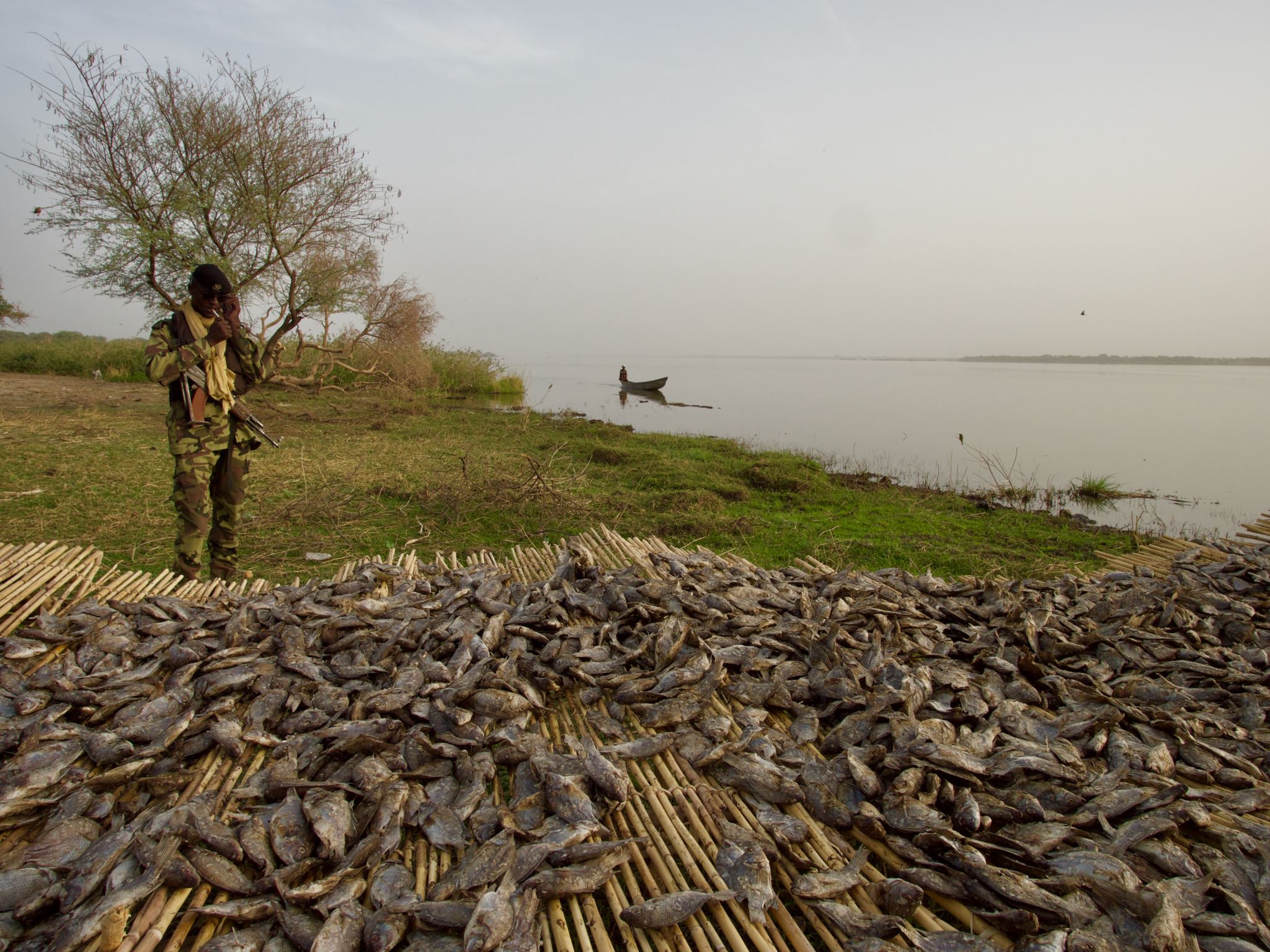
An armed security guard watches over fish drying by the lake in Baga Sola, Chad (©Arno Trümper/adelphi)
While military forces have had some success in bringing relative peace to the region, their heavily militarised approaches have often lacked sensitivity to the livelihoods and climate-coping strategies of local populations. For example, security forces have closed markets, blocked cross border trade and travel, banned livelihoods such as fishing in certain areas and restricted the movement of items such as fertilisers. These restrictions have heavily affected many people’s livelihoods as they can no longer move to new fertile areas to farm, herd or fish. In this way, key climate change adaptation strategies of mobility and livelihood diversification are no longer open to them.
